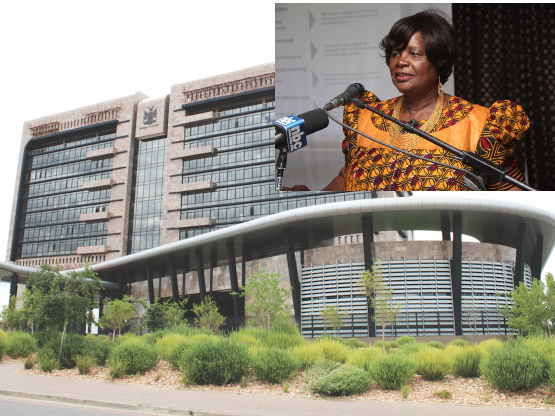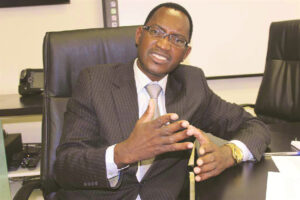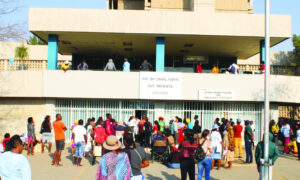[ad_1]
FORMER minister of home affairs, immigration safety and security Pendukeni Iivula-Ithana says she does not need recognition for her work at the home affairs ministry as more than 20 children have been named after her.
She said this yesterday in reaction to the inauguration of the new home affairs building in Windhoek North, which was named after former president Hifikepunye Pohamba.
President Hage Geingob inaugurated the office which cost N$813 million, and boasts 210 offices.
Iivula-Ithana, who did not attend the inauguration, told The Namibian she “played a pivotal role” and whatever she has done was meant for the public and not to glorify her name.
“I was not expecting anything. The public continues to recognise what I have done . . . and that to me is more important,” she said.
Meawnhile, Geingob yesterday said he appreciated the work Iivula-Ithana has done and her concerted efforts to improve services.
“I am pleased to inform the nation that as a result of these efforts which were spearheaded by the pioneers of the ministry, such as Hifikepunye Pohamba, the waiting period for national documents has been drastically reduced.
“It would be remiss, at this juncture, not to bring up the name of the Iron Lady, comrade Pendukeni Ithana, who during her tenure as minister of home affairs, played an instrumental role in the realisation of the construction of this beautiful building,” he said.
Geingob said the ministry has come a long way in improving service delivery to the people.
“Namibians used to queue in the early morning hours to apply for services,” he said.
He said he has appointed a task force on the fourth Industrial Revolution to ensure the nation is prepared to take advantage of the opportunities presented.
“As a custodian of national records and data, the ministry is expected to play a major role in the digitisation of records and data.
“I am therefore encouraged to note that the programme of online services promised by the ministry has commenced,” he said.
Meanwhile, Pohamba during the event said the naming recognises the hard and important work his pioneering team has carried out during the establishment of the ministry at the inception of Namibia.
“Without exaggeration, nothing existed in the country at the time of our transition, which resembled the ministry as an institution,” he said.
Pohamba said their first task was to put up the structure of the ministry, which was presented in April 1990 and approved by the Cabinet around May the same year, and subsequently by the Public Service Commission.
“We created two directorates, namely, the Directorate of Passports and Border Control, and the directorate of Civil Registration and Administration. One of our priorities was to incorporate prisons and police components into the Ministry of Home Affairs,” he said.
Pohamba said before independence, these departments were also headed by officials seconded by South Africa and directly reporting to Pretoria.
“Some challenge my team and I faced during the transition stage was the integration of Swapo Police officers into the colonial white force.
“I deemed it necessary to recap those formative events to shed some light on how difficult it was to demolish the institution, which was the key instrument of colonial oppression and repression in this country, and in its place to set up this very institution, which today is the cornerstone of peace, safety, security and the protector of our flourishing democracy,” he said.
[ad_2]
Source link




